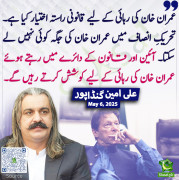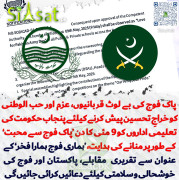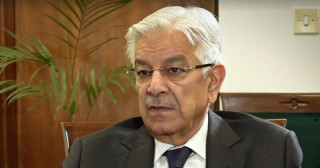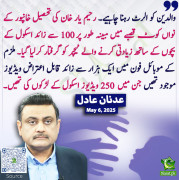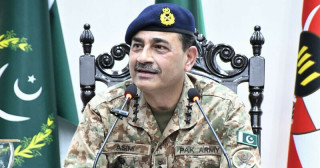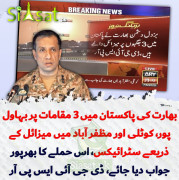Re: (شرمیلا بوس : بنگلہ دیش کے خلاف جنگ (بھارتی ک
Excerpts from "Blood and Tears"
Book by Qutubuddin Aziz
read book reviews |
buy books Looking at the tragic events of March 1971 in retrospect, I must confess that even I, although my press service commanded a sizeable network of district correspondents in the interior of East Pakistan, was not fully aware of the scale, ferocity and dimension of the province-wide massacre of the non-Banglis.
I must stress, with all the force and sincerity at my command, that this bock is not intended to be a racist indictment of the Bengalis as a nation. In writing and publishing this book, I am not motivated by any revanchist obsession or a wish to condemn my erstwhile Bengali compatriots as a nation. Just as it is stupid to condemn the great German people for the sins of the Nazis, it would be foolish to blame the Bengali people as a whole for the dark deeds of the Awami League militants and their accomplices.
I have incorporated in this book the acts of heroism and courage of those brave and patriotic Bengalis who sheltered and protected, at great peril to themselves, their terror-stricken non-Bengali friends and neighbours. On the basis of the heaps of eye-witness accounts, which I have carefully read, sifted and analysed, I do make bold to say that the vast majority of Bengalis disapproved of and was not a party to the barbaric atrocities inflicted on the hapless non-Bengalis by the Awami League's terror machine and the Frankensteins and vampires it unloosed. This silent majority, it seemed, was awed, immobilised and neutralised by the terrifying power, weapons and ruthlessness of a misguided minority hell-bent on accomplishing the secession of East Pakistan.
The sheaves of eye-witness accounts, documented in this book, prove beyond the shadow of a doubt that the massacre of West Pakistanis, Biharis and other non-Bengalis in East Pakistan had begun long before the Pakistan Army took punitive action against the rebels late in the night of March 25, 1971. It is also crystal clear that the Awami League's terror machine was the initiator and executor of the genocide against the non-Bengalis which exterminated at least half a million of them in less than two months of horror and trauma. Many witnesses have opined that the federal Government acted a bit too late against the insurgents. The initial success of the federal military action is proved by the fact that in barely 30 days, the Pakistan Army, with a combat strength of 38,717 officers and men in East Pakistan, had squelched the Awami League's March-April, 1971, rebellion all over the province.
Typical of the open-air, human abattoirs operated by the Awami League-led rebels in East Pakistan in 1971 is this photograph of multiple-executions done by a Mukti-Bahini killer squad in Dacca Race Course. The pro-Pakistan Bengali and non-Bengali victims were tortured before being slain
The hundreds of eye-witnesses from towns and cities of East Pakistan, whose testimonies are documented in this book, are unanimous in reporting that the slaughter of West Pakistanis, Biharis, and other non-Bangalis and of some pro-Pakistan Bengalis had begun in the early days of the murderous month of March 1971.
Looking at the tragic events of March 1971 in retrospect, I must confess that even I, although my press service commanded a sizeable network of district correspondents in the interior of East Pakistan, was not fully aware of the scale, ferocity and dimension of the province-wide massacre of the non-Banglis.I must stress, with all the force and sincerity at my command, that this bock is not intended to be a racist indictment of the Bengalis as a nation. In writing and publishing this book, I am not motivated by any revanchist obsession or a wish to condemn my erstwhile Bengali compatriots as a nation. Just as it is stupid to condemn the great German people for the sins of the Nazis, it would be foolish to blame the Bengali people as a whole for the dark deeds of the Awami League militants and their accomplices.
I have incorporated in this book the acts of heroism and courage of those brave and patriotic Bengalis who sheltered and protected, at great peril to themselves, their terror-stricken non-Bengali friends and neighbours. On the basis of the heaps of eye-witness accounts, which I have carefully read, sifted and analysed, I do make bold to say that the vast majority of Bengalis disapproved of and was not a party to the barbaric atrocities inflicted on the hapless non-Bengalis by the Awami League's terror machine and the Frankensteins and vampires it unloosed. This silent majority, it seemed, was awed, immobilised and neutralised by the terrifying power, weapons and ruthlessness of a misguided minority hell-bent on accomplishing the secession of East Pakistan.
The 170 eye-witnesses, whose testimonies or interviews are contained in this book in abridged form have been chosen from a universe of more than 5,000 repatriated non-Bengali families. I had identified, after some considerable research, 55 towns and cities in East Pakistan where the abridgement of the non-Bengali population in March and early April 1971 was conspicuously heavy. The collection and compilation of these eye-witness accounts was started in January 1974 and completed in twelve weeks. A team of four reporters, commissioned for interviewing the witnesses from all these 55 towns and cities of East Pakistan, worked with intense devotion to secure their testimony. Many of the interviews were prolonged because the Witnesses broke down in a flurry of sobs and tears as they related the agonising stories of their wrecked lives. I had issued in February 1974 an appeal in the newspapers for such eye-witness accounts, and I am grateful to the many hundreds of witnesses who promptly responded to my call.

A scene of Mukti Bahini mass murder of Biharis in Dacca on December 18, 1971. A rebel soldier lifts his boot to strike a bleeding bayoneted boy who showed signs of life. Dead bodies of other slain non-Bengalis lie in the foreground.
I am the lone survivor of a group of ten Pathans who were employed as Security Guards by the Delta Construction Company in the Mohakhali locality in Dacca; all the others were slaughtered by the Bengali rebels in the night of March 25, 1971, said 40-year-old Bacha Khan.
I heard the screams of an Urdu-speaking girl who was being ravished by her Bengali captors but I was so scared that I did not have the courage to emerge from hiding said a 24-year-old Zahid Abdi, who was employed in a trading firm in Dacca. He escaped the slaughter of the non-Bengalis in the crowded New Market locality of Dacca on March 23, 1971 and was sheltered by a God-fearing Bengali in his shop. The killers raped their non-Bengali teenage victim at the back of the shop and later on slayed her.
My only daughter has been insane since she was forced by her savage tormentors to watch the brutal murder of her husband, said Mukhtar Ahmed Khan, 43, while giving an account of his suffering during the Ides of March 1971 in Dacca.In the third week of March 1971, a gang of armed Bengali rebels raided house of my son-in-law and overpowered him. He was a courageous Youngman and he resisted the attackers. My daughter also resisted the attackers but they were far too many and they were well armed. They tied up my son-in-law and my daughter with ropes and they forced her to watch as they slit the throat of her husband and ripped his stomach open in the style of butchers. She fainted and lost consciousness. Since that dreadful day she has been mentally ill."
Shamim Akhtar, 28, whose husband was employed as a clerk in the Railway office in Dacca, lived in a small house in the Mirpur locality there.
She described her tragedy in these words:
On December 17, 1971, the Mukti Bahini cut off the water supply to our homes. We used to get water from a nearby pond; it was polluted and had a bad odour. I was nine months pregnant. On December 23, 1971, I gave birth to a baby girl. No midwife was available and my husband helped me at child birth. Late at night, a gang of armed Bengalis raided our house, grabbed my husband and trucked him away. I begged them in the name of God to spare him as I could not even walk and my children were too small. The killers were heartless and I learnt that they murdered my husband. After five days, they returned and ordered me and my children to vacate the house as they claimed that it was now their property.
Zaibunnissa Haq, 30, whose journalist husband, Izhar-ul-Haque, worked as a columnist in the Daily Watan in Dacca, gave this account of her travail in 1971:
A copy of the ads and the forms used for soliciting testimony from the victims.
.On December 21, a posse of Mukti Bahini soldiers and some thugs rode into our locality with blazing guns and ordered us to leave our house as, according to them, no Bihari could own a house in Bangladesh. For two days, we lived on bare earth in an open space and we had nothing to eat. Subsequently, we were taken to a Relief Camp by the Red Cross.
In Pubail and Tangibari, the Awami League militants and their rebel confederates murdered dozens of affluent Biharis. Shops owned by the Biharis were favourite target of attack.Four armed thugs dragged two captive non-Bengali teenage girls into an empty bus and violated their chastity before gunning them to death, said Gulzar Hussain, 38, who witnessed the massacre of 22 non-Bengali men, women and children on March 21, 1971, close to a bus stand in Narayangang. Repatriated to Karachi in November 1973, Gulzar Hussain reported: ".On March 21, our Dacca-bound bus was stopped on the way, soon after it left the heart of the city. I was seated in the front portion of the bus and I saw that the killer gang had guns, scythes and daggers. The gunmen raised 'Joi Bangla' and anti-Pakistan slogans. The bus driver obeyed their signal to stop and the thugs motioned to the passengers to get down. A jingo barked out the order that Bengalis and non-Bengalis should fall into separate lines. As I spoke Bengali with a perfect Dacca accent and could easily pass for a Bengali, I joined the Bengali group of passengers. The killer gang asked us to utter a few sentences in Bengali which we did. I passed the test and our tormentors instructed the Bengalis to scatter. The thugs then gunned all the male non-Bengalis. It was a horrible scene. Four of the gunmen took for their loot two young non-Bengali women and raped them inside the empty bus. After they had ravished the girls, the killers shot them and half a dozen other women and children.
She described her tragedy in these words:
As the victim did not die in a single bayonet strike, another Mukti-Bahini killer plunged his bayonet in to the writhing Biharis chest. Dead bodies of Bihari and Bengali victims lie strewn over the execution ground as Mukti-Bahini killers and their accomplices watch the butchery with sadist pleasure.
On December 17, 1971, the Mukti Bahini cut off the water supply to our homes. We used to get water from a nearby pond; it was polluted and had a bad odour. I was nine months pregnant. On December 23, 1971, I gave birth to a baby girl. No midwife was available and my husband helped me at child birth. Late at night, a gang of armed Bengalis raided our house, grabbed my husband and trucked him away. I begged them in the name of God to spare him as I could not even walk and my children were too small. The killers were heartless and I learnt that they murdered my husband. After five days, they returned and ordered me and my children to vacate the house as they claimed that it was now their property.
Zaibunnissa Haq, 30, whose journalist husband, Izhar-ul-Haque, worked as a columnist in the Daily Watan in Dacca, gave this account of her travail in 1971: .On December 21, a posse of Mukti Bahini soldiers and some thugs rode into our locality with blazing guns and ordered us to leave our house as, according to them, no Bihari could own a house in Bangladesh. For two days, we lived on bare earth in an open space and we had nothing to eat. Subsequently, we were taken to a Relief Camp by the Red Cross.
Nasima Khatoon, 25, lived in a rented house in the Pancho Boti locality in Narayanganj. Her husband, Mohammad Qamrul Hasan, was employed in a Vegetable Oil manufacturing factory. Repatriated to Karachi in January 1974, along with her 4-year-old orphaned daughter, from a Red Cross Camp in Dacca, Nasima gave this hair-raising account of her travail in 1971:
A Bihari victim grabbed by Mukti-Bahini killers, begging for mercy.
At gun point, our captors made us leave our house and marched us to an open square where more than 500 non Bengali old men, women and children were detained. Some 50 Bengali gunmen led us through swampy ground towards a deserted school building. On the way, the 3-year-old child of a hapless captive woman died in her arms. She asked her captors to allow her to dig a small grave and bury the child. The tough man in the lead snorted a sharp NO, snatched the body of the dead child from her wailing mother and tossed it into the river
The Awami League's rebellion of March 1971 took the heaviest toll of non-Bengali lives in the populous port city of Chittagong. Although the Government of Pakistan's White Paper of August 1971 on the East Pakistan crisis estimated the non-Bengali death toll in Chittagong and its neighbouring townships during the Awami League's insurrection to be a little under 15,000, the testimony of hundreds of eye-witnesses interviewed for this book gives the impression that more than 50,000 non-Bengalis perished in the March 1971 carnage. Thousands of dead bodies were flung into the Karnaphuli river and the Bay of Bengal.
Savage killings also took place in the Halishahar, Kalurghat and Pahartali localities where the Bengali rebel soldiers poured petrol and kerosine oil around entire blocks, igniting them with flame-throwers and petrol-soaked jute balls, then mowed down the non-Bengali innocents trying to escape the cordons of fire. In the wanton slaughter in the last week of March and early April, 1971, some 40,000 non-Bengalis perished in Chittagong and its neighbourhood. The exact death toll, which could possibly be much more will never be known because of the practice of burning dead bodies or dumping them in the river and the sea.
The uniformed killer puffing the cigarette to singe the eyes of the terrified prey. Eye gouging and burning the skin of victims was a favourite torture method of the rebels.










